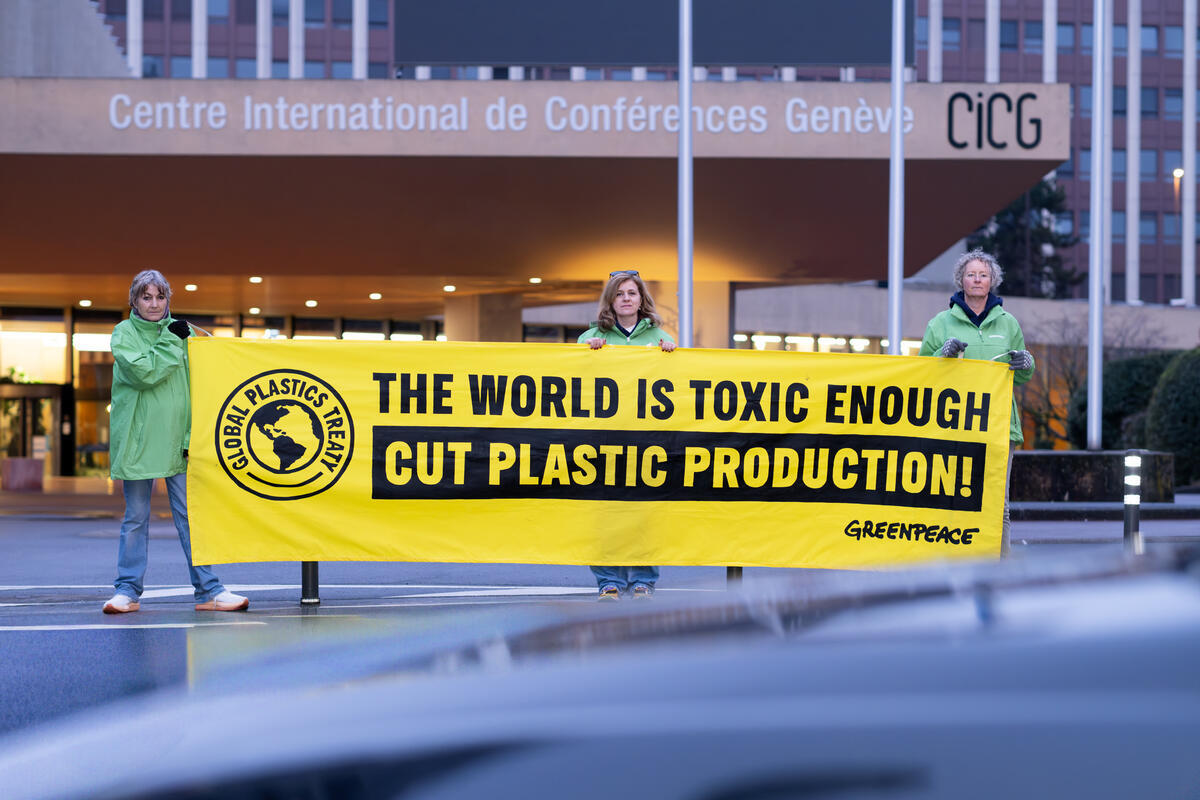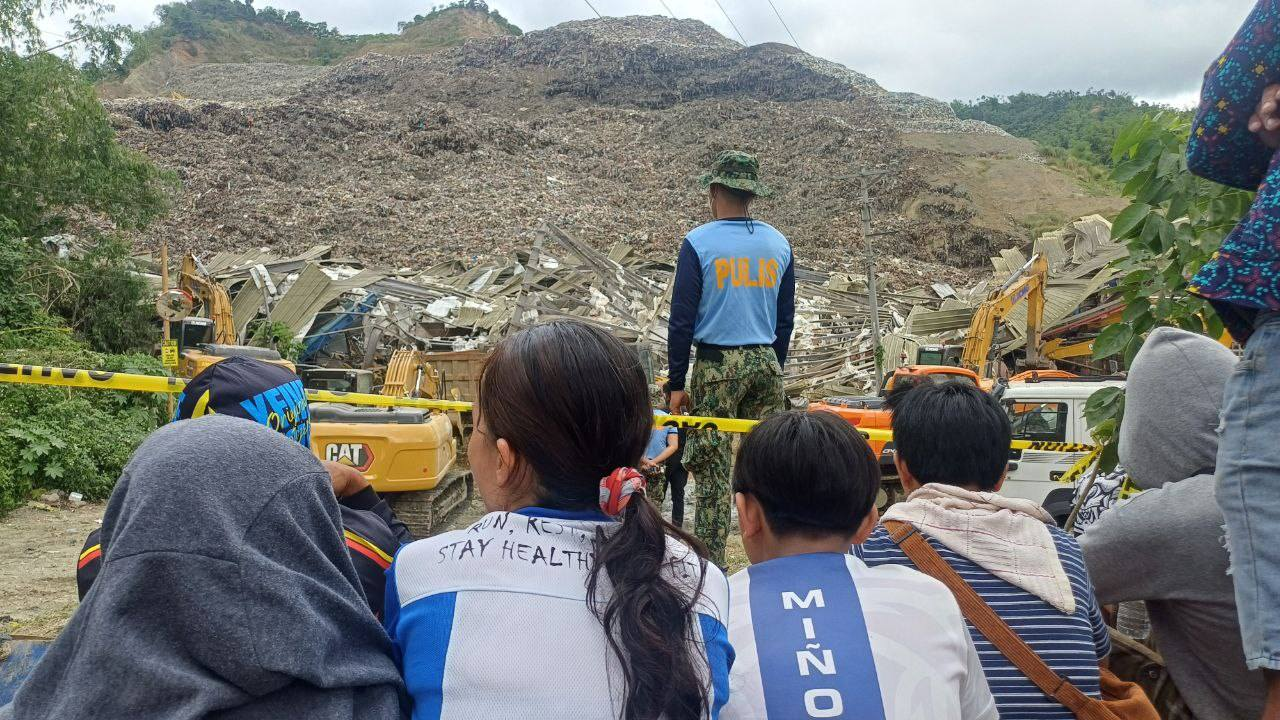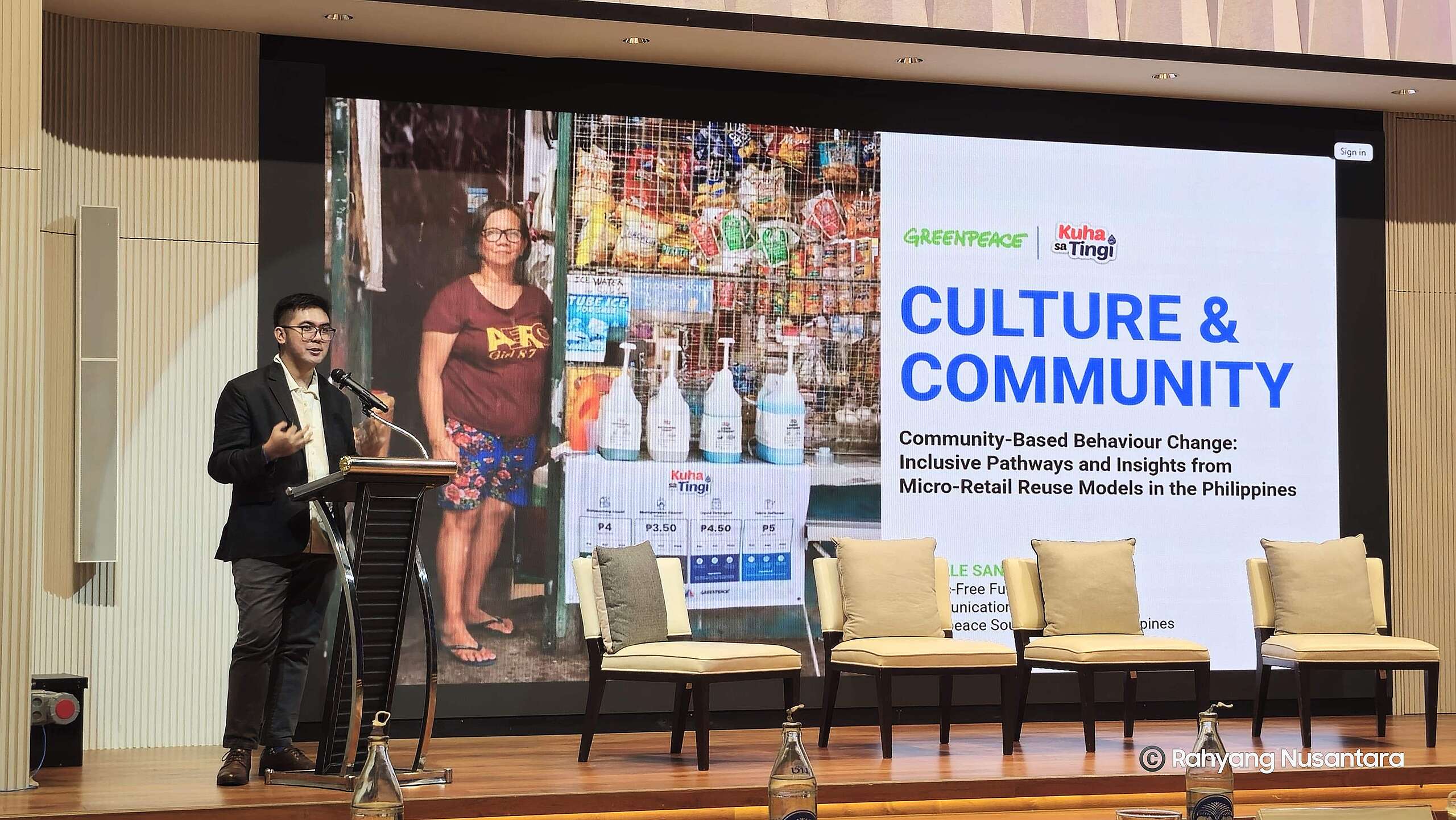QUEZON CITY, Philippines — The Department of Public Works and Highways recently announced its approval on using polyethylene terephthalate (PET) plastic bottle waste as an additive to make asphalt for national roads.
Reacting to the news, Greenpeace Philippines Zero Waste Campaigner Marian Ledesma said:
“We shouldn’t depend on false solutions. The use of plastic waste in building and maintaining our roads is not a solution to the plastic pollution crisis, nor is it a sustainable and safe option. This only creates more problems for the environment and public health.
“Roads inevitably break down. When you take into account the wear and tear that our roads undergo, as well as exposure to the sun and other elements, plastic waste in building roads can be potentially harmful. Plastics contain a cocktail of harmful chemicals, some known as forever chemicals, which can potentially be released and expose communities to health risks. This may also result in the release of more microplastics in the environment.
“The chemicals in plastic are not only linked to cancer, heart disease, other health conditions and deaths,[1] but they can also bioaccumulate in soil, plants and animals—eventually reaching people through our food. In the same manner, emissions of microplastics can add to water and air pollution, which can also contaminate our food system.
“Plastics are not a ‘valuable resource for building better.’ There are structural integrity issues when it comes to introducing plastic waste to concrete structures.[2] This only adds to all the negative impacts of plastic production and use—greenhouse gas emissions, toxic pollutants during production of plastic, exposure to dangerous chemicals, environmental degradation.
“If we really want to solve the plastic pollution crisis, we have to address the problem at source—through reduction of plastic production, bans on single-use plastics and genuine reuse systems that don’t generate any waste. The government should not institutionalize problematic false solutions. Ending plastic pollution means we should stop creating more problems—guised as a green and sustainable solution—for the environment and public health.
NOTES:
[1] Study links chemicals in plastics to deaths from heart disease – Greenpeace Philippines
[2] The introduction of plastic waste into concrete has its own issues, with studies having found adverse effects on the mechanical, durability and fresh concrete properties. One study concluded that the use of plastic waste as an aggregator within concrete can lead to reductions in mechanical performance and workability of the concrete substance.
For more information and interview requests, please contact:
Karl Orit
Communications Campaigner
Greenpeace Southeast Asia – Philippines
[email protected] | +63 9194571064 (Viber & WhatsApp)



